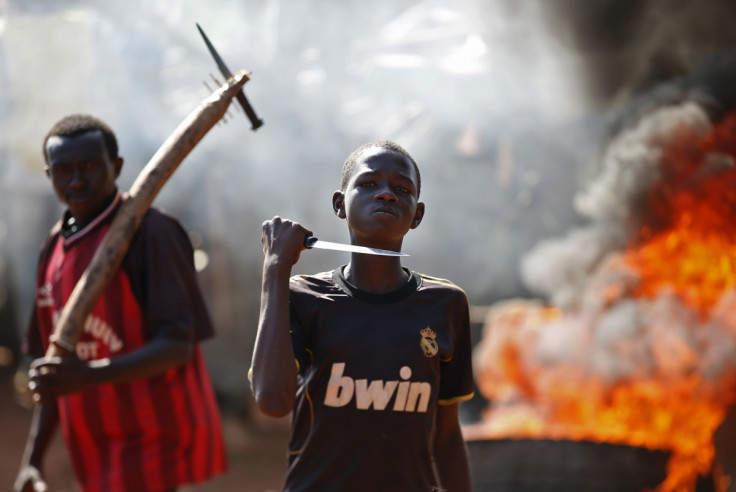Central African Republic: Leaked UN report claims Christian rebels burned elderly women alive

A leaked United Nations report on human rights violations has revealed that rebels in the Central African Republic (CAR) kidnapped, burned and buried alive elderly women deemed as "witches" at public ceremonies. The revelation comes ahead of Pope Francis's visit to the country's capital Bangui on 29 November, which is now being reviewed for security concerns.
The torture took place between December 2014 and early 2015 under instruction from leaders of the mainly Christian "anti-balaka" militia, which has been fighting Muslim Séléka rebels for more than two years. The CAR is facing an ongoing civil war between the Séléka rebel coalition and government forces since December 2012.
The UN stabilisation mission said 13 attacks against victims, aged between 45 and 70 and believed to be from the minority Muslim community, are said to have taken place near Baoro in Nana-Mambere — on the border with Cameroon, according to the report accessed by Reuters.
Victims were held at gunpoint and ordered to pay a bribe of £50 ($75.5) to avoid being tied up or burned to death. Those who failed to do so were executed in gruesome manner.
Even though witchcraft is illegal and punishable in the country, the UN report states that Christian rebels used these superstitions to intimidate, extort money and exert authority over lawless areas. In instances when clergymen may have intervened, they were asked to stick to their business of running the churches. "Anti-balakas are extorting huge sums from their victims, in exchange for their freedom," the document adds.
In 2014, Amnesty International reported several massacres committed by the anti-balakas against Muslim civilians, forcing thousands to flee the country. Over 80% of the CAR's population is Christian with Muslims comprising 15%, according to the 2003 national census.
In November 2013, UN Secretary-General Ban Ki-moon noted that the security situation in the country remained precarious, with government authority non-existent outside Bangui. Little may have changed since. Under these conditions, the country will host the pope for a 26-hour tour, when he is expected to visit a refugee camp, talk with government leaders and also meet with the Muslim community at a mosque.
Since the outbreak of violence in 2013, around 6,000 people have been killed and a quarter of the population displaced in the CAR, according to a Global Conflict Tracker report. Despite significant mineral deposits and other resources such as uranium reserves, crude oil, gold, diamonds, lumber and hydropower, the CAR remains among the poorest countries in the world.
© Copyright IBTimes 2025. All rights reserved.





















